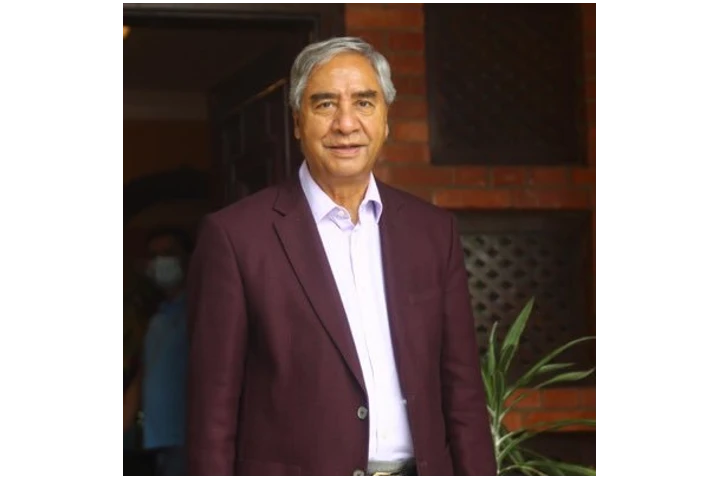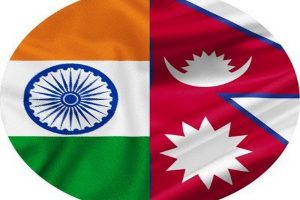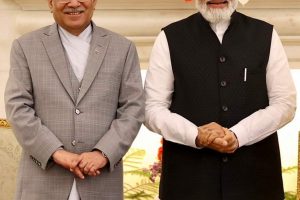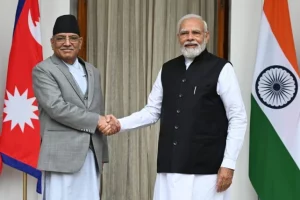As Nepal’s Prime Minister Sher Bahadur Deuba completes 100 days in office after taking over the country’s top job amid unusual circumstances and multiple challenges, credit goes to him for resetting Kathmandu's foreign policy amid rapid geopolitical shifts.
Despite leading a coalition government, he has managed to open channels of communication with India as well as China.
Deuba and his party — the Nepali Congress – have maintained that Kathmandu’s foreign policy will be driven by its national interest.
An analyst told India Narrative that Deuba has delicately balanced relations with both India and China.
Also read: Informal channel of engagements will hold key for India Nepal relations
In an interview to Rising Nepal, Deuba said, “We have an open border with India and there is people-to-people exchange at the greater level so maintaining good relations with the southern neighbour is in our interest. Nepalis go to India for work and pilgrimage.”
“We have more intensive public, cultural and commercial relations with it,” he told the news organisation.
While around 6 lakh Indians are living in Nepal about 8 lakh Nepalese have made India their home.
The Prime Minister said that maintaining good relations with its neighbours will be given top priority.
Earlier this month, a high level delegation of the ruling Nepali Congress led by former Foreign Minister and head of party's international department Prakash Sharan Mahat visited India.
Speaking to India Narrative Udaya Shumsher Rana, former minister of state for finance and a member of Nepali Congress, who was also part of the delegation, said that the visit was to foster friendly ties between the two neighbours.
Rana said that India and Nepal have many commonalities in terms of geography, culture and religion besides heightened social interaction owing to open borders. “These factors and the interdependence on each other have helped bind the two countries despite several hiccups,” he told India Narrative earlier.
India and Nepal share an open border. While around 6 lakh Indians are living in Nepal about 8 lakh Nepalese have made India their home.
Also read: Have India and Nepal quietly started rechartering their bilateral ties?
Meanwhile, apart from government to government dealings, India and Nepal are set to strengthen bilateral ties through party to party contact as well.
Rana, during his visit to India, said that such party to party meetings will become a more common and regular feature.
Bhaskar Koirala, Director of the Nepal Institute of International and Strategic Studies added that Nepal and India must engage even at the state levels.
“Nepal and India have a unique opportunity to strengthen their bilateral ties at this key juncture of global history when so many systemic (political, technological, social etc) changes are buttressing regional and global trends. The most important aspect of this relationship must centre on people to people relations and the galvanising effect this has on state to state relations,” he said in an emailed interview.




















